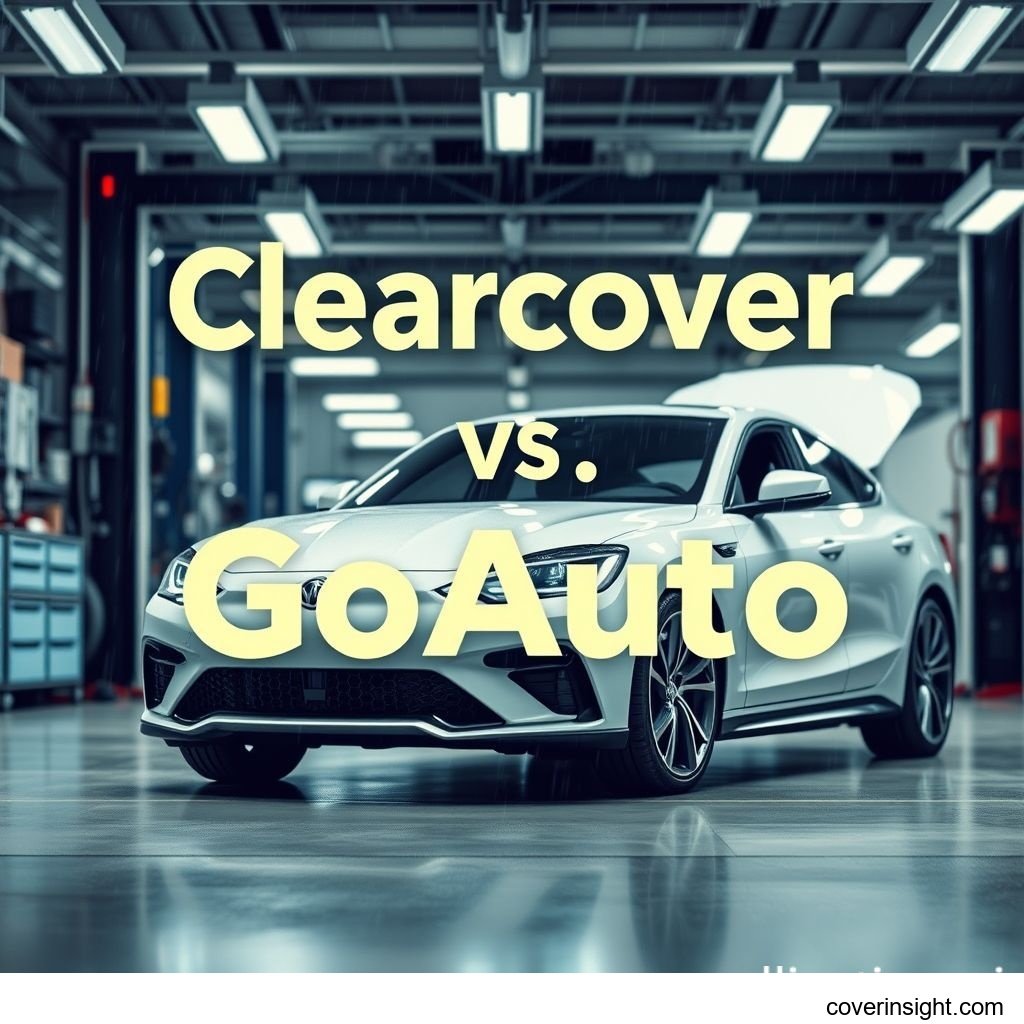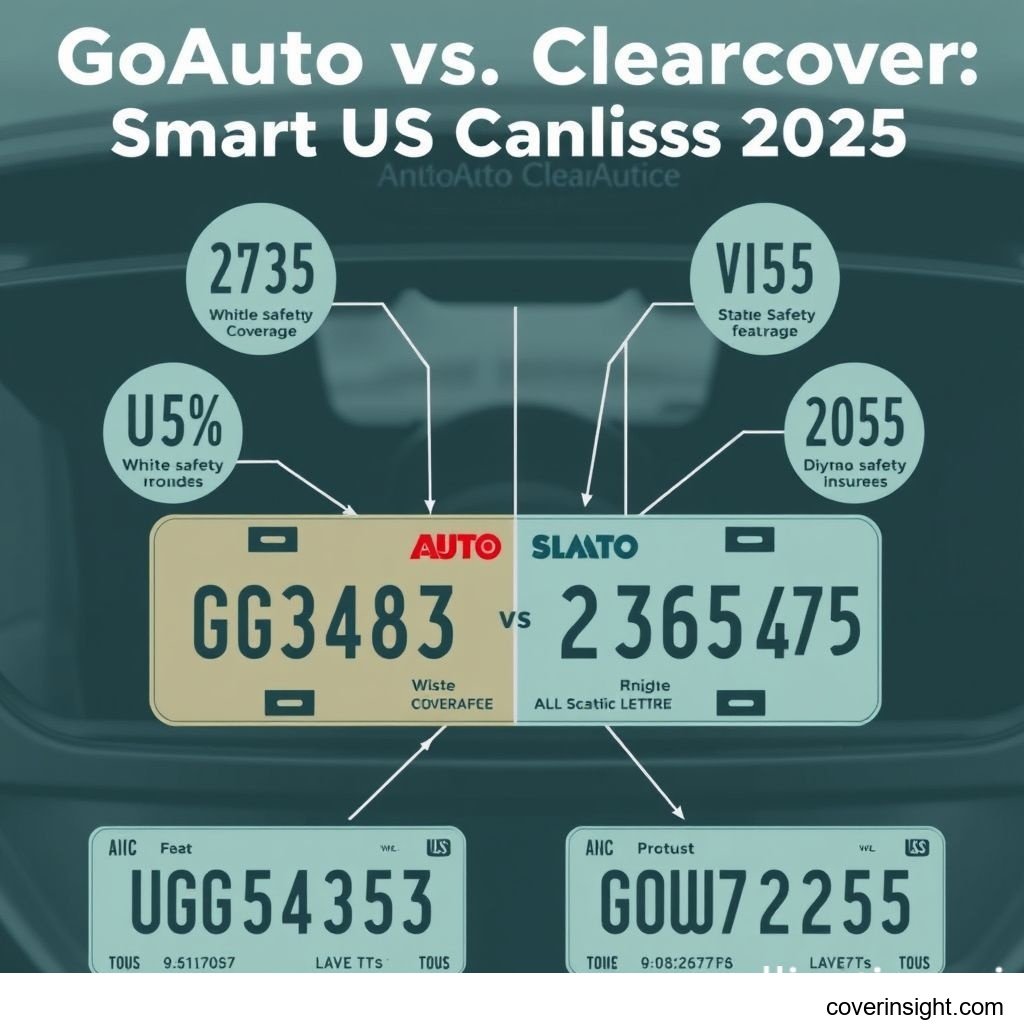Introduction
Navigating the landscape of auto insurance in the United States can be complex, especially with a myriad of options available. As we look towards 2025, understanding direct auto insurance reviews becomes more critical than ever. Direct insurers, who sell policies directly to consumers without intermediaries, often present a streamlined and potentially more affordable path to coverage. This guide aims to provide a comprehensive look into what direct auto insurance reviews entail, their importance in making informed decisions, and how to effectively evaluate your options. These reviews offer invaluable insights into customer experiences, policy specifics, and the overall value proposition of different providers, empowering consumers to secure the best possible coverage.
Coverage Details for Direct Auto Insurance Reviews
Understanding the specifics of what an auto insurance policy covers is paramount when reading direct auto insurance reviews. While policies vary by provider and state, there are standard components every driver should be aware of.
What’s Included
Most direct auto insurance policies offer a blend of essential coverages designed to protect you financially in various situations.
-
Liability Coverage: This is typically mandatory in most states. It covers damages and injuries you cause to other people or their property in an at-fault accident.
-
Bodily Injury Liability: Pays for medical expenses, lost wages, and pain and suffering for others involved in an accident where you are at fault.
-
Property Damage Liability: Covers damage to another person's property, such as their vehicle, fence, or building.
-
-
Collision Coverage: Pays for damage to your own vehicle resulting from a collision with another vehicle, an object (like a tree), or if you roll over, regardless of who is at fault.
-
Comprehensive Coverage: Protects your car from non-collision incidents. This includes theft, vandalism, fire, natural disasters (hail, flood), and damage from falling objects or striking an animal.
-
Uninsured/Underinsured Motorist (UM/UIM) Coverage: This protects you if you're involved in an accident with a driver who either has no insurance or insufficient insurance to cover your damages.
-
Personal Injury Protection (PIP) or Medical Payments (MedPay): These cover medical expenses for you and your passengers, regardless of fault, after an accident. PIP can also cover lost wages and essential services.
When analyzing direct auto insurance reviews, pay close attention to how thoroughly these standard coverages are explained and if customers report any unexpected gaps.
Common Exclusions
Even the most robust direct auto insurance policies have exclusions. Being aware of these can prevent unpleasant surprises down the line.
-
Intentional Damage: Damage caused deliberately by the policyholder is never covered.
-
Racing or Illegal Activities: Damage incurred while participating in racing, stunts, or other illegal activities (e.g., DUI) is excluded.
-
Wear and Tear: Routine maintenance, mechanical breakdowns, or gradual wear and tear on your vehicle are not covered by standard policies.
-
Custom Equipment: Aftermarket modifications or custom parts that are not declared to the insurer might not be covered, or only up to a very limited amount.
-
Business Use: If you use your personal vehicle for commercial purposes (e.g., ridesharing, delivery services) without specific commercial insurance or an appropriate endorsement, damages might be excluded. Many direct auto insurance reviews highlight the importance of declaring vehicle use.
-
Driving Without a Valid License: If an accident occurs while the driver does not possess a valid driver's license, coverage may be denied.
-
Vehicles Not Listed on Policy: Typically, only vehicles explicitly listed on your policy are covered. Lending your car to someone not on your policy could result in denied claims if they are involved in an accident, unless it falls under permissible use.
Understanding these exclusions is vital. Always read the policy's fine print, and if in doubt, contact the insurer directly.
Cost Analysis for Direct Auto Insurance Reviews
The cost of direct auto insurance is a primary concern for most consumers. While direct insurers often offer competitive rates due to lower overhead, several factors influence your premium. Examining direct auto insurance reviews specifically for pricing transparency and customer satisfaction with rates can be very illuminating.
Price Factors Affecting Premiums
Your direct auto insurance premium is calculated based on a complex algorithm that considers various risk factors.
-
Driving Record: A clean driving record with no accidents or violations typically leads to lower rates. Conversely, a history of tickets or at-fault accidents will increase your premium.
-
Vehicle Type: The make, model, year, and safety features of your vehicle significantly impact costs. Expensive, high-performance, or frequently stolen cars usually cost more to insure.
-
Location: Where you live and primarily park your car affects your rates. Urban areas with higher traffic density, crime rates, or accident frequencies generally have higher premiums.
-
Age and Gender: Younger, less experienced drivers (especially teenagers) often face higher premiums due to statistical risk. While gender is less of a factor than it once was, some states still consider it.
-
Credit Score: In many states, insurers use a credit-based insurance score as a predictor of claim likelihood. A higher credit score can result in lower premiums.
-
Coverage Levels and Deductibles: Choosing higher liability limits, more comprehensive coverage (like collision and comprehensive), or lower deductibles will increase your premium.
-
Annual Mileage: Drivers who log fewer miles annually are often considered lower risk and may qualify for discounts.
-
Marital Status: Married individuals often receive lower rates, as they are statistically less likely to file claims.
Saving Tips for Auto Direct Insurance
Even with the variables affecting premiums, there are numerous strategies to help you save on your auto direct insurance policy. Many direct auto insurance reviews highlight successful ways customers have reduced their costs.
-
Shop Around: Obtain quotes from multiple direct insurers. Prices can vary significantly for the same coverage.
-
Bundle Policies: Combine your auto direct insurance with other policies like homeowners or renters insurance for a multi-policy discount.
-
Increase Deductibles: Opting for a higher deductible on collision and comprehensive coverage can lower your premium, but ensure you can afford to pay it out-of-pocket if needed.
-
Maintain a Clean Driving Record: Avoid accidents and traffic violations to keep your rates low.
-
Utilize Discounts: Ask about all available discounts. These might include:
-
Good student discounts
-
Defensive driving course discounts
-
Low mileage discounts
-
Anti-theft device discounts
-
Payment discounts (e.g., paying in full, automatic payments)
-
Usage-based insurance programs (telematics)
-
-
Improve Your Credit Score: A better credit score can lead to lower premiums in states where it's a permissible rating factor.
-
Drive a Safer Vehicle: Cars with high safety ratings and lower repair costs often qualify for lower insurance rates.
-
Regularly Review Your Policy: As your life circumstances change (e.g., getting married, children leaving home, paying off your car), your insurance needs and discounts may change. Review your policy annually.
Comparing Direct Auto Insurance Reviews & Providers
When researching direct auto insurance reviews, comparing different providers is essential. Not all direct insurers are created equal, and what works for one driver might not be ideal for another.
Top Direct Insurers: Evaluating Progressive and Others
The direct auto insurance market features several prominent players, each with unique strengths. When evaluating direct auto insurance reviews, it’s beneficial to look at common themes for leading insurers.
-
Progressive: Known for its innovative "Snapshot" program, which offers personalized rates based on driving behavior. Progressive often features heavily in direct auto insurance reviews due to its strong online presence and competitive rates, especially for drivers with less-than-perfect records. Its broad range of discounts and bundling options also makes it a popular choice.
-
GEICO: One of the largest direct insurers, GEICO is widely recognized for its aggressive marketing and often low rates, particularly for good drivers. Their robust mobile app and extensive customer support options are frequently praised in auto direct insurance discussions.
-
Esurance: A fully online direct insurer, Esurance caters to tech-savvy customers looking for a digital-first experience. Their straightforward quoting process and user-friendly interface are often highlighted in direct auto insurance reviews.
-
Root Insurance: This relatively newer player leverages technology, focusing heavily on driving data from your smartphone to determine rates. Root aims to offer highly personalized pricing based purely on how you drive, appealing to safe drivers.
-
Lemonade Car: Expanding from home and renters insurance, Lemonade offers car insurance with a focus on ease of use, social good, and quick claims processing through AI. Their mission-driven approach is a unique selling point.
When comparing these providers, look beyond just price. Consider their financial strength (rated by agencies like A.M. Best), customer service reputation, and the efficiency of their claims process, all of which are common topics in direct auto insurance reviews. For broader industry insights, the National Association of Insurance Commissioners is an excellent resource.
Benefits of Opting for Auto Direct Insurance
Choosing an auto direct insurance provider comes with several advantages that attract a growing number of consumers.
-
Potential Cost Savings: By eliminating the need for agents and their commissions, direct insurers can often pass these savings on to consumers in the form of lower premiums.
-
Convenience and Speed: You can get quotes, purchase policies, and manage your account entirely online or over the phone, often 24/7. This allows for quick policy acquisition, which is often lauded in direct auto insurance reviews.
-
Direct Communication: When you have questions or need to file a claim, you deal directly with the insurer, potentially streamlining communication and resolution.
-
Wider Access to Information: Direct insurers typically have comprehensive websites and mobile apps, providing easy access to policy documents, billing information, and claims tracking.
-
Personalized Experience: While direct, many companies now use advanced algorithms and data analytics to offer highly personalized rates and recommendations based on individual driving habits or preferences, as seen with companies like Progressive.
(Image alt text suggestion: A person comparing direct auto insurance reviews on a tablet.)
The Direct Auto Insurance Application Process
Applying for direct auto insurance is typically straightforward, designed for efficiency and convenience. Understanding the steps and required documents can help you get coverage quickly.
Steps to Get Your Policy
The process of obtaining a direct auto insurance policy generally involves a few key steps:
-
Gather Information: Before you start, collect all necessary details about yourself, your driving history, and your vehicle(s).
-
Get Quotes: Visit the websites of several direct insurers or use an online comparison tool. Enter your information accurately to receive personalized quotes. Most direct auto insurance reviews emphasize the importance of getting multiple quotes to find the best deal.
-
Compare Quotes and Coverage: Don't just look at the price. Compare the types and amounts of coverage offered, deductibles, and any included add-ons. Read direct auto insurance reviews about each company's claims process and customer service.
-
Select Your Policy: Choose the policy that best fits your needs and budget.
-
Provide Additional Details and Payment: Once you select a policy, you'll likely need to provide your driver's license number, VIN, and banking information for payment.
-
Review and Sign: Carefully review all policy documents. Many direct insurers offer electronic signatures for convenience.
-
Receive Proof of Insurance: Upon payment, you'll immediately receive proof of insurance, usually via email, which you can print or keep on your phone.
Required Documents for Application
To ensure a smooth application process for your direct auto insurance, have the following documents and information readily available:
-
Driver's License Number: For all drivers to be included on the policy.
-
Vehicle Identification Number (VIN): For each vehicle you want to insure. This helps the insurer identify your exact vehicle model, year, and features.
-
Vehicle Make, Model, Year: Basic information about your car.
-
Odometer Reading: Your current mileage might be requested for low-mileage discounts.
-
Current Insurance Information: If you currently have insurance, details of your previous policy can help with continuity discounts.
-
Personal Information: Your full name, date of birth, address, and social security number (for a credit-based insurance score, where applicable).
-
Payment Information: Bank account details or credit/debit card for premium payments.
(Image alt text suggestion: A hand filling out a direct auto insurance application online.)
Navigating Direct Auto Insurance Reviews: What to Look For
While direct auto insurance reviews are a goldmine of information, it’s crucial to know what aspects to prioritize to gain a holistic view of an insurer.
Assessing Customer Service and Support
Excellent customer service is a hallmark of a reliable direct insurer. When sifting through direct auto insurance reviews, pay close attention to:
-
Accessibility: Do reviews mention easy access to support via phone, chat, or email? Are representatives available 24/7, or only during business hours?
-
Responsiveness: How quickly do customer service agents respond to inquiries or issues? Long wait times or delayed responses are red flags.
-
Helpfulness: Are representatives knowledgeable, polite, and effective in resolving problems? Do they go the extra mile to explain policy details or help with claims?
-
Online Tools: Many direct insurers offer self-service portals and mobile apps. Positive direct auto insurance reviews often highlight intuitive apps for managing policies, paying bills, or tracking claims.
-
Complaint Resolution: Look for patterns in how complaints are handled. Are issues typically resolved to the customer's satisfaction?
Reliable customer support ensures peace of mind, especially when you need it most.
Understanding the Claims Process
The true test of any direct auto insurance provider lies in its claims process. When reading direct auto insurance reviews, focus on:
-
Ease of Filing: Is the claims process simple and straightforward? Can claims be filed online, via app, or just by phone?
-
Speed of Resolution: How quickly are claims typically processed and paid out? Delays can be financially burdensome after an accident.
-
Fairness of Settlements: Do customers feel they received a fair settlement for their damages? Are there frequent disputes over valuations?
-
Communication During Claims: How well does the insurer communicate updates during the claims process? Do they keep the policyholder informed every step of the way?
-
Adjuster Professionalism: Are claims adjusters described as professional, empathetic, and efficient?
A smooth, transparent, and fair claims process is arguably the most important aspect of a positive direct auto insurance experience.
Financial Stability of Insurers
While less commonly discussed in typical direct auto insurance reviews, an insurer's financial stability is paramount. It indicates their ability to pay out claims, especially large ones, even during widespread disasters.
-
Ratings from Agencies: Look for ratings from independent financial strength rating agencies such as A.M. Best, Standard & Poor's, Moody's, or Fitch. A rating of "A" or higher generally indicates strong financial health.
-
History and Reputation: Research the insurer's history. A long-standing company with a good reputation for paying claims is a strong indicator.
-
Solvency Ratios: While more technical, these ratios show an insurer's capital adequacy. Regulators like the State Insurance Departments oversee these aspects.
Choosing a financially stable insurer provides confidence that your claims will be honored, protecting you when it matters most.
(Image alt text suggestion: A magnifying glass over direct auto insurance reviews to highlight key information.)
FAQs on Direct Auto Insurance Reviews
Here are some frequently asked questions regarding direct auto insurance reviews and the policies themselves, providing quick answers to common concerns.
How much does direct auto insurance reviews cost?
The "cost" of direct auto insurance reviews refers to the premium you pay for the policy, not the reviews themselves. The average cost varies significantly based on factors like your driving record, location, vehicle type, age, and chosen coverage limits. For example, a 30-year-old with a clean record might pay $1,200 annually, while a teenager could pay $3,000+. The best way to determine your specific cost is to obtain multiple quotes from direct auto insurance providers.
What affects premiums?
Numerous factors influence your direct auto insurance premiums, including your driving history (accidents, violations), the type and age of your vehicle, where you live (urban vs. rural, crime rates), your age and gender, your credit score (in most states), the amount of coverage and deductibles you choose, and any discounts you qualify for. Insurers assess these factors to determine your risk profile.
Is it mandatory?
Yes, auto insurance is mandatory in nearly every U.S. state. The specific minimum liability coverage requirements vary by state. Driving without at least the state-mandated minimum coverage can result in significant penalties, including fines, license suspension, vehicle impoundment, or even jail time. Direct auto insurance reviews often highlight the ease of meeting these requirements through direct providers.
How to choose?
Choosing the best direct auto insurance involves comparing quotes from multiple providers, assessing their coverage options, understanding their claims process, and evaluating their customer service based on direct auto insurance reviews. Consider your budget, driving habits, and specific needs. Look for insurers with strong financial ratings and positive customer feedback regarding responsiveness and fairness.
Consequences of no coverage?
Driving without mandatory auto insurance can lead to severe consequences. These include:
-
Fines: Substantial monetary penalties.
-
License Suspension: Your driver's license can be suspended or revoked.
-
Vehicle Impoundment: Your car may be impounded, incurring towing and storage fees.
-
SR-22 Filing: You may be required to file an SR-22 form, proving future financial responsibility, which can lead to higher insurance rates.
-
Legal Action: If you cause an accident, you will be personally responsible for all damages and injuries, which could lead to significant lawsuits and financial ruin.
In conclusion, leveraging comprehensive direct auto insurance reviews is crucial for making an informed decision about your coverage in 2025. By carefully considering coverage details, cost factors, and insurer reliability, you can secure a policy that offers both protection and peace of mind.











Comments